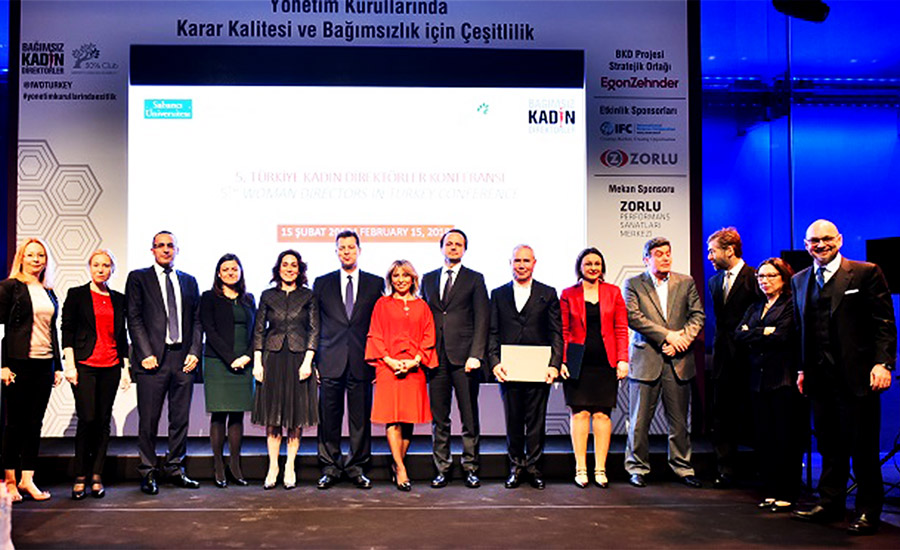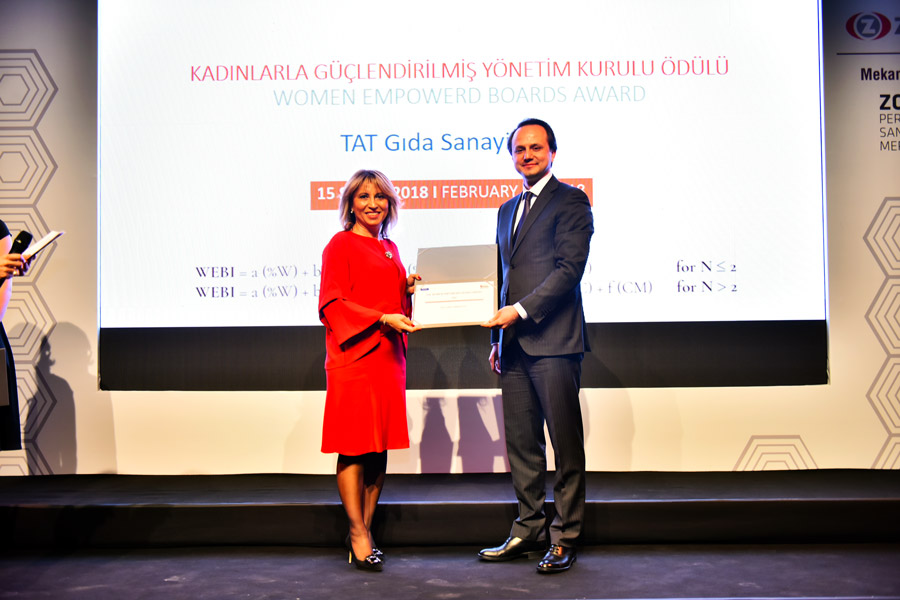- HOME
- ABOUT US
- EU PROJECT
- WOB TURKEY PROGRAM
- DATA BANK
- EVENTS
- MEDIA
- COMMUNICATION
- HOME
- ABOUT US
- EU PROJECT
- WOB TURKEY PROGRAM
- DATA BANK
- EVENTS
- MEDIA
- COMMUNICATION
The 5th Conference on Woman Directors in Turkey held by the Sabancı University Corporate Governance Forum and hosted by Zorlu Holding took place at Zorlu Performing Arts Center on Thursday, February 15, 2018.
The Woman Directors in Turkey 2017 Report and the outcomes of the imposition of a legal quota were discussed in an international panel session, followed by the 2017 Boards Empowered by Women Awards.
The recipient of the Boards Empowered by Women Award was TAT Food. Tat Food General Manager and WOB Turkey Vice President Arzu Aslan Kesimer received the award.
IFC ECA Senior Manager Jesper Kjaer made the opening speech of the event. Jesper Kjaer started that it is a global priority for IFC, as well as in Turkey, to support the advancement of the Women on Boards agenda. JK said: “ The current 13.9% rate of women representation in boards in Turkey is close to the world average, but still significantly lower than the targets. To reach these targets, the private sector, regulators, and civil society organizations need to work together. Recently, there have been important developments in this respect, such as the 2025 targets of 30% Club, and the CMB recommendation to target 25% women representation in companies. As a large international investor in Turkey, we strongly support this agenda. Out of 5 of our investee companies, where we have assigned Board Members, 2 are women. We will also soon launch a training program for female executives in corporate governance and board leadership."
Sabancı University Corporate Governance Forum Director Melsa Ararat delivered the presentation of the 2017 Report on Woman Directors in Turkey following the opening speech.
Melsa Ararat pointed out that the ratio of women on boards had been increasing since 2012 until it declined in 2017, continuing: ‘Unless the fight against gender preconceptions is consistent, companies will not be able to perform sustainably in inclusivity and diversity. We need to work more effectively to ensure that the working environment responds better to the role defined for women by society nowadays, while also striving to change that very role in the first place.’




